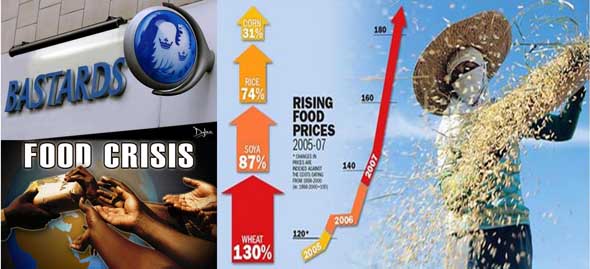Outrage as bank revealed to be major speculator while millions face starvation

Barclays has made as much as half a billion pounds in two years from speculating on food staples such as wheat and soya, prompting allegations that banks are profiting handsomely from the global food crisis.
Barclays is the UK bank with the greatest involvement in food commodity trading and is one of the three biggest global players, along with the US banking giants Goldman Sachs and Morgan Stanley, research from the World Development Movement points out.
Last week the trading giant Glencore was attacked for describing the global food crisis and price rises as a “good” business opportunity.
The extent of Barclays’ involvement in food speculation comes to light as new figures from the World Bank show that global food prices hit an all-time high in July, with poor harvests in the US and Russia pushing up the average worldwide cost of staples by an unprecedented 10 per cent in a month.
The extent of just one bank’s involvement in agricultural markets will add to concerns that food speculation could help push basic prices so high that they trigger a wave of riots in the world’s poorest countries, as staples drift out of their populations’ reach.
The following article sheds more light on how the changes in regulations effected and what might be behind rising food prices:
The Egyptian Tinderbox: How Banks and Investors Are Starving the Third World
(From the article) In a revealing July 2010 report in Harper?s Magazine titled ?The Food Bubble: How Wall Street Starved Millions and Got Away with It,? Frederick Kaufman wrote:
The history of food took an ominous turn in 1991, at a time when no one was paying much attention. That was the year Goldman Sachs decided our daily bread might make an excellent investment?.
Robber barons, gold bugs, and financiers of every stripe had long dreamed of controlling all of something everybody needed or desired, then holding back the supply as demand drove up prices.



